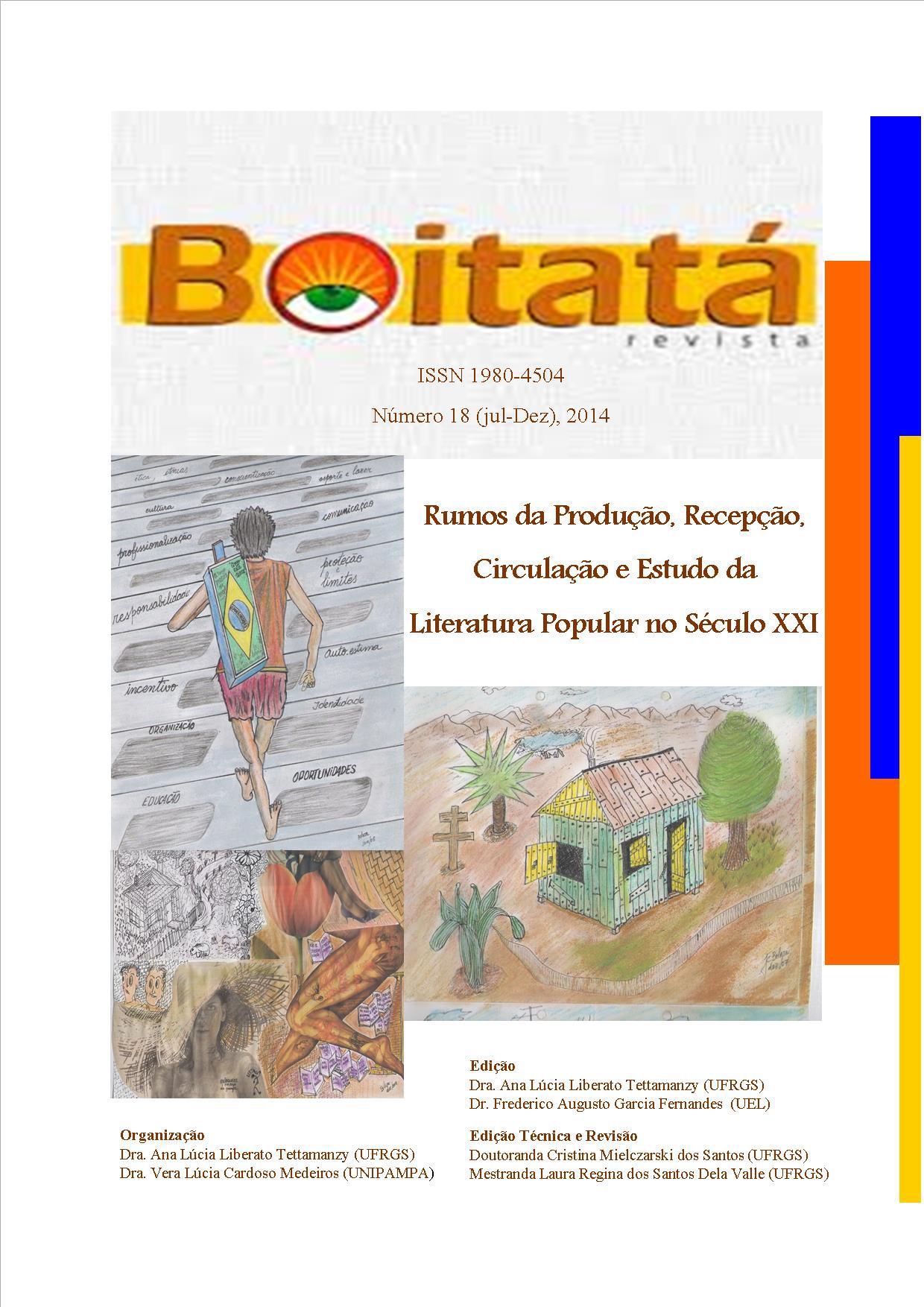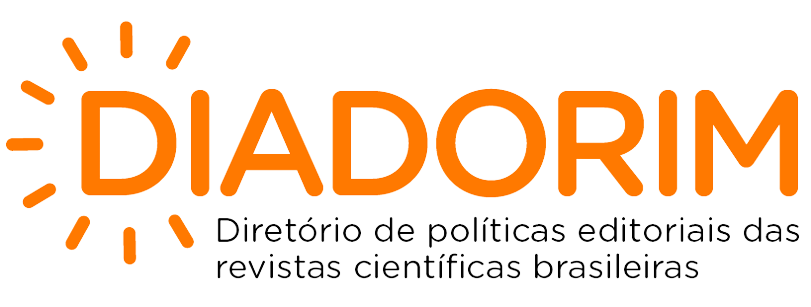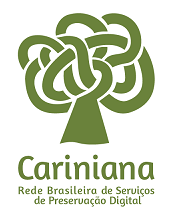Malandro Folclórico: um produto singular ou uma mercadoria recuperada?
DOI:
https://doi.org/10.5433/boitata.2014v9.e31696Keywords:
Trickster, Folklore process, Deterritorialization, CultureAbstract
This paper intend to investigate why the Brazilian president Getúlio Vargas promoted the trickster folklore process, giving financial support to the diffusion and commercialization of the musical production in the “Estado Novo” epoch; and did not give credit to the black literature production written by black writer in the same epoch; the same happened 1964´s dictatorship. This article also aimed to question both individuals, concerning to their political, cultural, social, racial and ethical attitude in these periods and compare both realities in terms of diffusion, commercialization and reception of these works. The theoretical foundation of this paper is based on the works of Thompson, Clifford, Guattari and Culler. We draw a conclusion that the trickster visibility was greater because the popular culture, from which the trickster was protagonist, was easily transformed in mass culture.Downloads
Download data is not yet available.
References
ANDRADE, Oswald de. A utopia antropofágica. São Paulo: Globo Editora, 1990.
BEAUDRILLARD, Jean. A transparência do mal. Tradução de Estela dos Santos Abreu. São Paulo: Papirus, 1990.
CULLER, Jonathan. Teoria Literária: uma introdução. Tradução de Sandra Vasconcelos. São Paulo: Ed. Beca Produções Culturais Ltda., 1999.
GEERTZ, Clifford. Descrição densa: por uma teoria interpretativa da cultura. Tradução de Fanny Wrobel. In: A interpretação das culturas. Rio de Janeiro: Livros Técnicos e Científicos Editora, 1989.
GUATTARI, Félix. La revolution moléculaire: Revolucão Molecular: pulsações políticas do desejo. Tradução de Sueli Rolnik. São Paulo: Editora Brasiliense, 1977.
GUATTARI, Félixe e ROLNIK, Sueli. Cartografias do desejo. 6. ed. Petrópolis, RJ: Vozes, 2000.
HANCHARD, Michael George. Orfeu e o poder: o movimento negro no Rio de Janeiro e São Paulo (1945-1988). Rio de Janeiro: Ed. UERJ, 2001.
FERREIRA, Elio; MENDES, Algemira de Macedo (Org.).Literatura afrodescendente: memória e construção de identidades. São Paulo: Ed. Quilombohoje, 2011.
MATOS, Claudia Neiva de. Acertei no milhar: malandragem e samba no tempo de Getúlio. Rio de Janeiro: Paz e Terra, 1982.
THOMPSON, John B. Ideologia e cultura moderna: teoria social crítica na era dos meios de comunicação de massa. Petrópolis, RJ: Editora Vozes, 1995.
SOUZA, Florentina da Silva. Afro-descendência em Cadernos Negros e Jornal do MNU. Belo Horizonte: Editora Autêntica, 2005.
BEAUDRILLARD, Jean. A transparência do mal. Tradução de Estela dos Santos Abreu. São Paulo: Papirus, 1990.
CULLER, Jonathan. Teoria Literária: uma introdução. Tradução de Sandra Vasconcelos. São Paulo: Ed. Beca Produções Culturais Ltda., 1999.
GEERTZ, Clifford. Descrição densa: por uma teoria interpretativa da cultura. Tradução de Fanny Wrobel. In: A interpretação das culturas. Rio de Janeiro: Livros Técnicos e Científicos Editora, 1989.
GUATTARI, Félix. La revolution moléculaire: Revolucão Molecular: pulsações políticas do desejo. Tradução de Sueli Rolnik. São Paulo: Editora Brasiliense, 1977.
GUATTARI, Félixe e ROLNIK, Sueli. Cartografias do desejo. 6. ed. Petrópolis, RJ: Vozes, 2000.
HANCHARD, Michael George. Orfeu e o poder: o movimento negro no Rio de Janeiro e São Paulo (1945-1988). Rio de Janeiro: Ed. UERJ, 2001.
FERREIRA, Elio; MENDES, Algemira de Macedo (Org.).Literatura afrodescendente: memória e construção de identidades. São Paulo: Ed. Quilombohoje, 2011.
MATOS, Claudia Neiva de. Acertei no milhar: malandragem e samba no tempo de Getúlio. Rio de Janeiro: Paz e Terra, 1982.
THOMPSON, John B. Ideologia e cultura moderna: teoria social crítica na era dos meios de comunicação de massa. Petrópolis, RJ: Editora Vozes, 1995.
SOUZA, Florentina da Silva. Afro-descendência em Cadernos Negros e Jornal do MNU. Belo Horizonte: Editora Autêntica, 2005.
Downloads
Published
2014-10-30
How to Cite
Bomfim, D. C. (2014). Malandro Folclórico: um produto singular ou uma mercadoria recuperada?. Boitatá, 9(18), 98–113. https://doi.org/10.5433/boitata.2014v9.e31696
Issue
Section
Dossiê
License
Copyright (c) 2014 Boitatá

This work is licensed under a Creative Commons Attribution 4.0 International License.
Boitatá esta licenciada com CC BY sob essa licença é possível: Compartilhar - copiar e redistribuir o material em qualquer suporte ou formato. Adaptar - remixar, transformar, e criar a partir do material, atribuindo o devido crédito e prover um link para a licença e indicar se mudanças foram feitas.




















